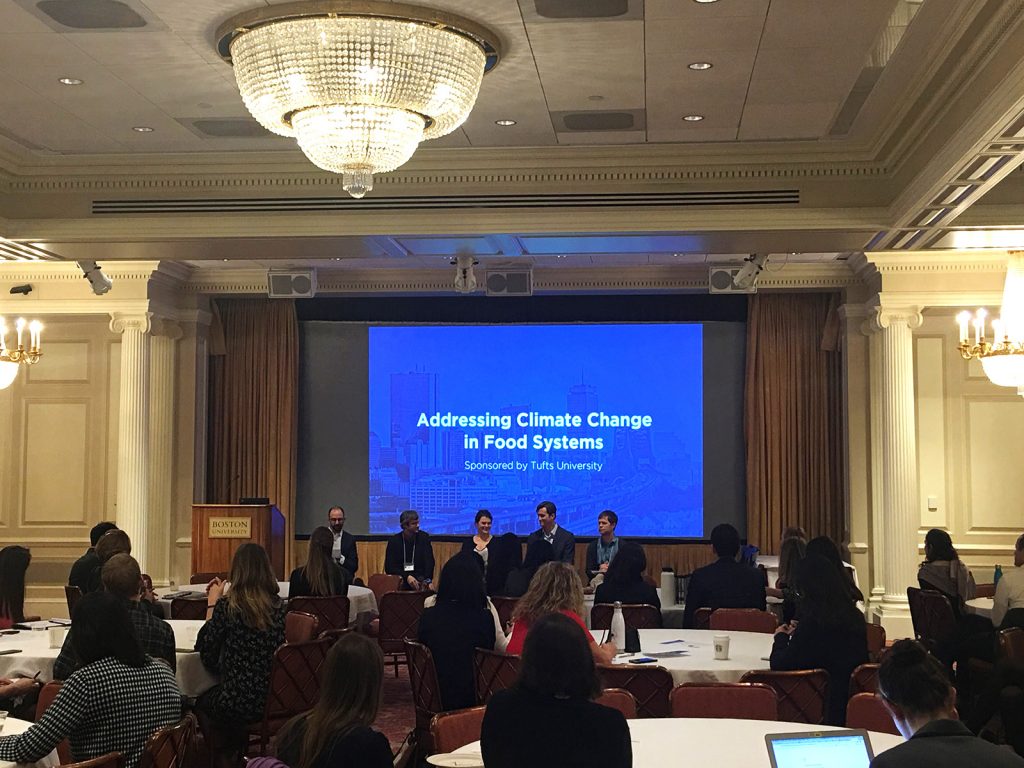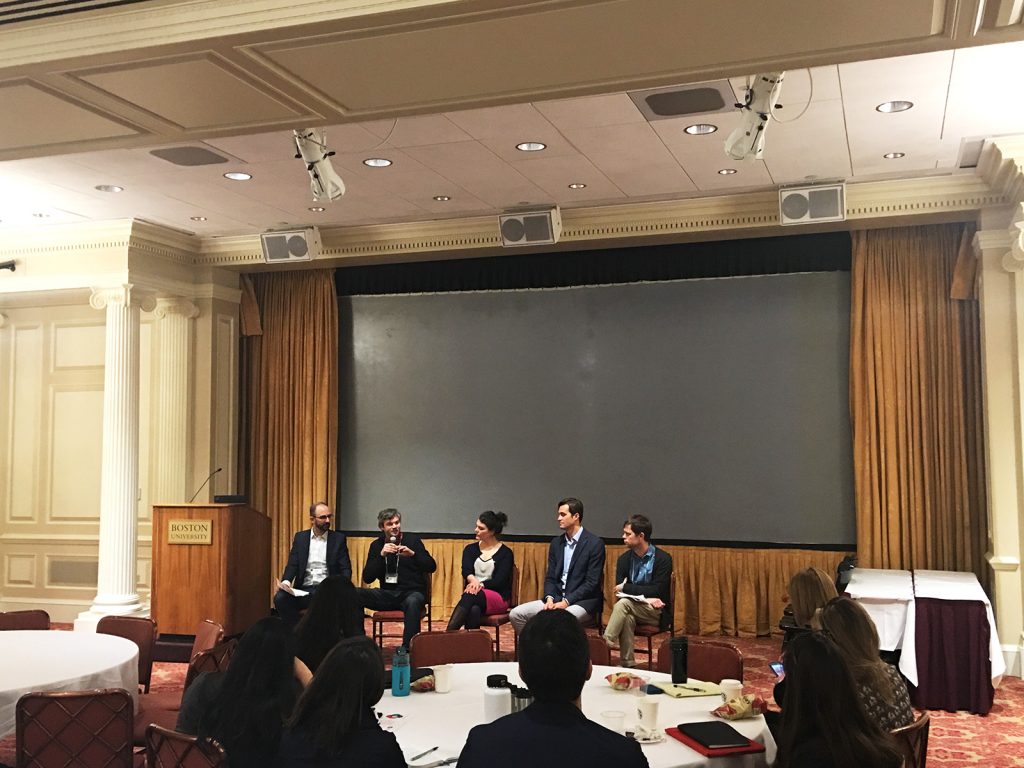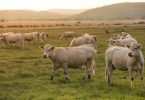By Dave Sebastian
BU News Service

BOSTON — Rotating the types of crops grown in an area and enriching the soil with organic matter are some ways to reduce carbon emission. But farmers need more financial incentives to implement such strategies, agriculture executives and researchers said at a Feb. 9 panel at Boston University Questrom School of Business.
Agriculture companies would need to compensate growers for their efforts in making the farmland more sustainable for greener farming strategies to be achieved, the panelists said at the talk, which was organized as part of the Boston Impact Summit.
The obstacle at hand: farm profitability, said Dorn Cox, the research director at Freeport, Maine-based Wolfe’s Neck Center for Agriculture and the Environment.
“Farmers have been primarily paid for food, fiber and energy, not for clean water, flood mitigation, habitat restoration and … mitigation of wildfires,” Cox said at the panel, which was moderated by Avery Cohn, assistant professor at the Friedman School of Nutrition Science and Policy at Tufts University. “There’s a whole host of services that have substantial added value that do not end up back at the farm level.”
Most growers are paid by the quantity of crops they yield, and they’re unlikely to do more beyond that, said Dan Harburg, the innovation team co-lead at Boston-based agricultural technology company Indigo Agriculture.
“Why would I rent a house and upgrade the bathroom? That doesn’t make any sense,” Harburg said. “So it’s the same situation here: If I’m improving the quality of the soils I’m renting, somebody can come and take them away from me and get them to somebody else that they become more productive.”
There’s also room for research in the shift to regenerative farming, which involves diversifying cover crops and avoiding synthetic fertilizers, Renée Vassilos, founder and agricultural economist at the Boston-based Banyan Innovation Group, said at the talk.
Land-grant institutions — educational institutions that are, by law, compelled to focus on agriculture, military tactics and mechanic arts — should step up such type of research, she said.
The agriculture sector, which consists of livestock, agricultural soils and rice production, produced 9 percent of U.S. greenhouse gas emissions in 2016, trailing last behind transportation, electricity, industrial, commercial and residential sectors, according to the latest U.S. Environmental Protection Agency data.

More traction in sustainable farming
Panelists said they were optimistic about the future of alternative farming that strives to balance food production with fighting climate change.
The Green New Deal introduced Feb. 7 by Rep. Alexandria Ocasio-Cortez (D-N.Y.) and Sen. Ed Markey (D-Mass.), exemplifies the traction, said John Stoddard, the founder of Higher Ground Farm, a Boston-based agricultural consulting firm.
“A lot of this is sort of acknowledging that climate change is happening and putting into place policy that will encourage the type of innovation and support that and to be willing to address the power structures that are keeping our conventional agriculture still in place,” Stoddard said.
Newer methods such as indoor farming have been gaining traction among investors and could serve a testing ground before being implemented among farmers at large, Vassilos said.
“Farmers that operate at scale have no way to accurately test, do lab-testing around what different production practices, what the impacts those might have on the operations,” Vassilos said. “A really critical piece that needs to get addressed is helping mitigate the risk for farmers to make that shift.”
Environmental, social and governance stock indexes, which track public companies based on the three criteria, could also drive companies to adopt sustainable farming practices so as to keep investors satisfied, Vassilos told BU News Service after the panel.
“ESG metrics are impacting farming in that consumer-packaged goods companies are looking at ESG metrics and recognizing supply chains — where the food comes from — can have a huge positive impact in them hitting their ESG goals,” Vassilos said.
Correction: This article was updated due to a reporting error. Banyan Innovation Group is based in Boston. A previous version of this article stated the group as being headquartered Boulder, Colo.





[…] Pay farmers to implement green strategies, agriculture executives and researchers say BU News Service […]